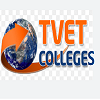TVET Colleges And The Fourth Industrial Revolution
TVET Colleges And The Fourth Industrial Revolution
The revolution offers fresh, exciting prospects as well as answers to pressing global issues like industrialization’s mechanization. It will also lead to the creation of hitherto unimagined new jobs. Serious skills mismatches remain a significant barrier for skills development even with increased investments in Technical and Vocational Education and Training (TVET). Governments, educational institutions, and policymakers must therefore consider how to best position TVET, both current and future, to prosper in this rapidly changing global environment. TVET 4.0, or Technical and Vocational Education and Training, is an intriguing, dialectical, and multifaceted opportunity that has the ability to improve society.
Artificial intelligence is driving the fourth industrial revolution, which will change the workplace from one that is task-based to one that is human-centered. The subject distance between science and technology and between the humanities and social sciences will shrink as a result of the convergence of man and machine. More interdisciplinary teaching, research, and innovation in TVET will be necessary to achieve this. In order to prepare graduates for the demands of Industry 4.0 and to be internationally competitive, TVET stakeholders in the Asia Pacific area must therefore take new steps and work to develop graduates that are balanced, entrepreneurial, and holistic.
We are now living in a knowledge economy, where knowledge is created, hence Fourth Industrial Technology (4IR). Fourth Industrial Technology explained:
- The Fourth Industrial Revolution represents a fundamental change in the way we live, work and relate to one another,
- The Fourth Industrial Revolution is technology-driven change,
- Provides opportunity to harness converging technologies in order tocreate an inclusive, human-centred future.
Fourth Industrial Revolution is about digitization of our practices, initiatives and activities. Where do we place TVET in all this?
Impact of digitization on Education and TVET System:
- Access to electricity and ICT facilities (minimal disparities)
- Reliably internet connectivity to enhance digital penetration – digitaldivide avoidance
- Need for priority setting in skills policies (Skills profiling a requisite)
- Focus on foundational cognitive and socio-emotional skills and basic digital literacy
- Nurturing of critical thinking and problem solving skills
- Define skills, knowledge and attitudes required for 4IR (Brown-Martin,2017)
- Transformational agenda and strategy need to be clearly spelled out by TVET Education Training Providers and accountable ministries.
Barriers to TVET ETPs Responsiveness to the 4Th IR
The are many factors that contributes to Education and Training providers in TVET lack of to the fourth Industrial Revolution.
- Lack of clear contextualized vision and coordination of 4IR initiatives and mandates
- Fourth Industrial Revolution rubrics and digitization of TVET not explicitly pronounced in TVET policies and governance
- “Tail wagging the dog” approach and mentality – Who is driving the 4IR in TVET?
- Lack of clear skills development relating to 4IR in TVET Curriculum Innovation.
READ MORE: Are Electrical Engineers Rich?
Barriers to TVET ETPs Responsiveness to the 4Th IR
- Dichotomy in curriculum philosophies and Content areas
– Explicit vs Tacit curriculum philosophies
– A clash of philosophies derived from influences of the various donor agencies involved in the of the subject and the clash of philosophies appearing at initial teacher training (tertiary) or higher
education level.
- Pedagogic changes: Demands in the pedagogy due to significant change brought by curriculum innovation in TVET
- Societal expectation vs reluctance to change
